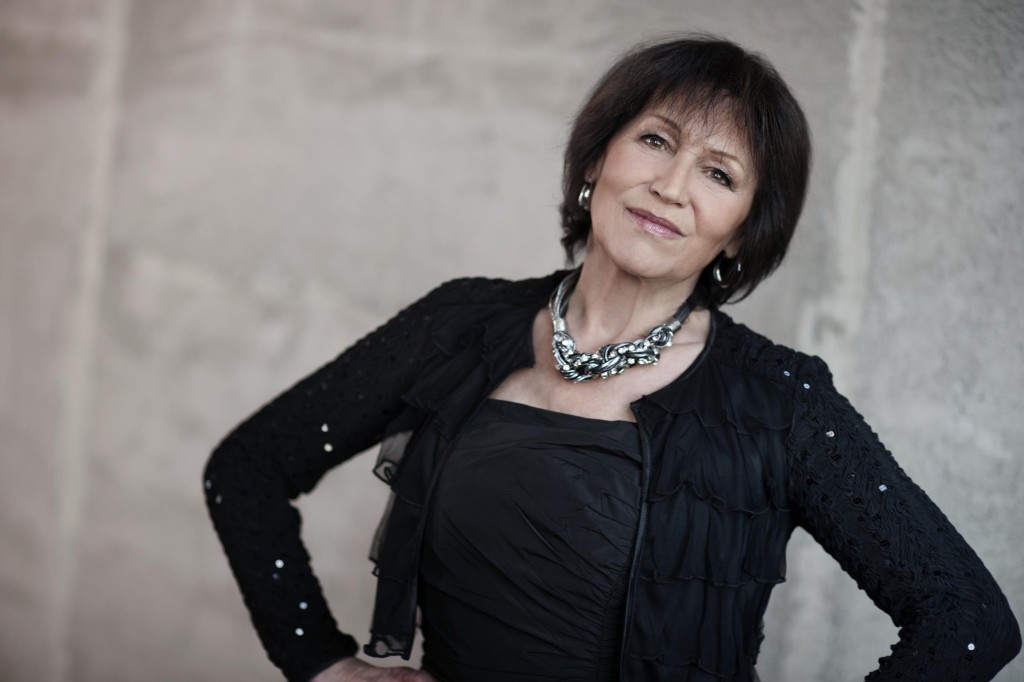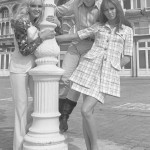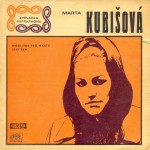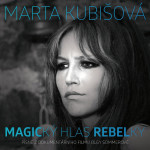The story of Marta Kubišová, singer and symbol of resistance
Ovation and silence. Wenceslas Square is crowded, moved and composed, hands in the sky, swollen eyes, flags in the wind. When Marta comes out, on the balcony of the Melantrich building, it is a day at the end of November. It is 1989. Victory and liberation. And that grave and agreeable voice that pierces twenty years of humiliating silence, with a song, A Prayer for Martha, and for an entire nation present to listen to it. A new starting point of Czechoslovak history that winter. The end of a paranoid and perverse regime, capable of demeaning and silencing one of the most beautiful voices in the country, an icon of beauty, an artist of enchantment: Marta Kubišová. Since that day, for thirty years she has resumed activity through concerts, theatre, television, both at home and abroad, involvement in civil society, and campaigns for the protection of animals. The singer with a famous deep gaze has gone back to being the symbol of a new republic, Czech and free.
 She rediscovered and continued the music that had been forbidden for her until last November when she performed the last time in Prague, in the legendary hall of Lucerna. However, the cycle of a tormented, yet extraordinary career came to a close in her native České Budějovice, on the day of her seventy-fifth birthday. It is from this provincial town that Marta Kubišová, daughter of a cardiologist and a housewife, took her first steps into the world of music. She then passed from one theatre hall to another, from the province to the capital: from the Alfa Theater in Pilsen to Rokoko theatre of Prague, an environment that witnessed the emergence of several Czechoslovakian stars such as Helena Vondráčková and Václav Neckář.
She rediscovered and continued the music that had been forbidden for her until last November when she performed the last time in Prague, in the legendary hall of Lucerna. However, the cycle of a tormented, yet extraordinary career came to a close in her native České Budějovice, on the day of her seventy-fifth birthday. It is from this provincial town that Marta Kubišová, daughter of a cardiologist and a housewife, took her first steps into the world of music. She then passed from one theatre hall to another, from the province to the capital: from the Alfa Theater in Pilsen to Rokoko theatre of Prague, an environment that witnessed the emergence of several Czechoslovakian stars such as Helena Vondráčková and Václav Neckář.
It was with them in 1968 that Marta formed, the Golden Kids, a group that immediately enjoyed great success. Already in the spring of ‘68 the trio headed to Paris, where they performed at the Olympia music hall in a series of concerts. An experience that Marta Kubišová still evokes with affection and passion for Progetto Repubblica Ceca: “When we went to France with the Golden Kids, the Prague Spring was in full swing. Upon arrival in Paris we came across the stormy student demonstrations. Bruno Coquatrix, the Director of Olympia ed., took care of us as children, and suggested to us not to stop over in the city during the day. He made us visit the surroundings of the capital and brought us back to Olympia for our concert”.
Days of youth, music and barricades. But almost in conjunction with that mythical “mai ‘68” in Paris, something more tragic was being prepared in the country of Kubišová and her comrades. For her, the return to Czechoslovakia would be the beginning of the catastrophe. The singer, a supporter of Dubček during the Prague Spring, following the Soviet invasion of August, refused to sing Cesta, a celebratory text for the soldiers of the Red Army. Prayer for Martha took its place.
This song, originally, was supposed to be merely music for the series A song for Rudolf III, a series broadcast on Czech television in the period of 1967-1968: “Let peace still remain with this country! Let hatred, envy, grudge, fear, and strife cease! Now when your formerly lost rule over your things returns back to you, people, it returns back to you!”.
Poetic and poignant text that immediately became a hymn of resistance against the calamity of a foreign invasion. A song, a destiny. Marta Kubišová discussed it with our magazine in the following way: “Prayer for Martha intrinsically belongs to me and I began to feel it almost like a backpack on my shoulders. Listeners sometimes say that I was born for this song”.
Marta, Czechoslovakia’s musical icon of the second half of the ‘60s, was to be one of those who would pay dearly for the consequences of non-alignment, both personally and professionally. Firstly, the regime had forbidden her from performing in public, from being interviewed, and appearing on television. The radio no longer transmitted her songs. The Communist authorities, meticulous and petty, knew of her sympathy for Dubček, that her brother had exiled himself after the Soviet invasion, and that several of her friends already made up the ranks of dissidents.
The coup de grace, to discredit and annihilate her, would be violent and vulgar. The regime used the subterfuge of a pornographic photomontage to silence her once and for all, to totally undermine her reputation. This is what led Marta Kubišová to return to anonymity, first in the countryside, then in a Prague construction company where she worked as a clerk until the Velvet revolution of ‘89.
During all these hard years of silence, in 1971, due to the accumulated psycho-physical stress, a spontaneous abortion followed by clinical death, she continued to maintain ties with Czech dissidents, became a spokesman for Charta 77 in the autumn of 78, and participated in meetings between artists, philosophers and writers organized by Václav Havel and his wife Olga in their country house in Hrádeček.
In June 1979, when her daughter Kateřina was born, Marta asked Václav Havel to act as her godfather for the baptism, but it was on that occasion when the regime’s henchmen would make the most famous raid against dissent activists. Havel was sentenced to 4 years in prison: “I kept in touch with him through his wife who gave him my letters and drawings from Kateřina”, Kubišová told Radio Prague. All these years of silence did not break her, nor did she change positions. On the contrary they justified and reinforced them.
Consequently, when on December the 10th, 1988 in Škroupovo Square in Prague, she was able to sing the national anthem on the occasion of the first public display of dissent, the gesture had an extraordinary symbolic force. Not even a year later she would be looking out of that mythical balcony in Wenceslas Square to intone her Prayer: a work of art that has become “an effective instrument of political struggle”.
Even today she remains a symbol of resistance, and even today she is silenced. It happened last November when the bodyguards of Czech President Zeman interrupted her song during a protest in the city of Lipník nad Bečvou. A Prayer for Martha has lost none of its energy of action, indeed: “it is a song that lives a life of its own, that continues to arouse strong emotions and feelings in people”.
by Edoardo Malvenuti









